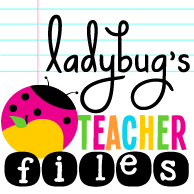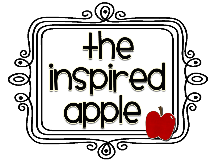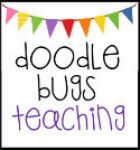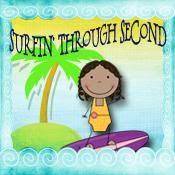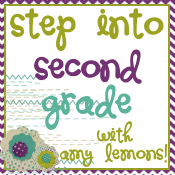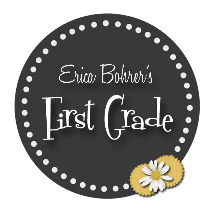William Butler Yeats, a well-known Irish poet, summed up what I believe to be the purpose education when he spoke the following words, “Education is not the filling of a pail, but the lighting of a fire.” As educators, it is our responsibility to light a fire in each and every child who walks through our classroom doors. I strive to do this in a variety of ways through the careful implementation of specific curriculum, quality instruction, and meaningful assessment.
In regards to curriculum, specific learning goals and standards need to be outlined and communicated with all stakeholders. A strong curriculum, coupled with teacher buy-in, will drive quality instruction and guide the careful assessment of each student’s progress. In my six years as a professional educator, I have implemented a hands on approach to delivering and teaching the curriculum outlined for my students. It is my belief that students learn best when they are actively engaged in their own learning process. They are engaged in quality learning experiences from the moment they step foot in the classroom. They collaborate with partners and small groups, act out plays with meaningful scripts, compose thoughtful writing projects in their writing notebooks, engage in letter writing with pen pals from other states, ask thought provoking questions, create purposeful messes during art class, make observations and generate hypotheses through engaging science experiments, read quality literature, utilize their growing imaginations for a variety of projects, analyze the effectiveness of their business practices during an annual class market project, write thoughtful and caring notes to sick classmates, and go on to become lifelong learners. Each child I teach is extremely unique in the way he or she learns. I strive to use my talents to accommodate the individual needs of each of my students. I do not want my current or future students to be standing with an empty pail waiting to be filled up with facts I dictate to them. My desire is to ignite a fire that will burn within each and every one of them. It is my hope that each child I have the privilege to educate will develop a lifelong love for learning. No teacher should ever extinguish that fire which burns so brightly in the lives of young children.
 |
| idiom study |
Children are naturally inclined to learn and enjoy doing so when they are intrinsically motivated. Quality instruction is a key factor when educating a diverse student population and educators ought to aide students in realizing their potential. Quality instruction that is learner focused will no doubt produce citizens who are prepared for a global, intellectually, and socially demanding society. Instruction should be explicit in regards to both the intellectual and social needs of each child. A fire that burns with only facts and knowledge will soon be extinguished. It is our job and moral obligation as professional educators to prepare students to enter a democratic society where their voice can and will be heard. Intelligence is of utmost importance, but without character, morals, and values, it will not adequately prepare one for life in an ever changing 21st century society. Through thoughtful planning and careful instruction, students will be prepared to enter the world outside the four walls of the school building. Through careful assessment of student learning, educators are constantly changing the way subject material is presented in order to reach their students and guide them along in their educational journey.
 |
| concrete poem from poetry unit |
Meaningful assessment is necessary to ensure that students are making academic progress and that they are comprehending the concepts they are expected to master as outlined by the curriculum. Meaningful assessment occurs when teachers and administrators analyze the data that has been gathered and it is then used to guide future instruction and/or reteach concepts that were misunderstood. I believe testing and assessment are sometimes used interchangeably by those who are not familiar with education. It is easy for those outside the world of education to proclaim that schools are failing when only standardized test scores are published for the general public. When standardized tests are culturally, socially, and economically biased, how is this a true measure of the competency of our current education system? Meaningful assessment occurs in classrooms across the country every single day. The school where I teach does not put our focus on standardized tests. We are free from the fear of losing federal funding if we do not meet Adequate Yearly Progress, because of our status as a parochial school. We administer the Stanford Achievement Test every spring, but I do not spend the year teaching to the test or administering practice tests all year long. It is time for education to be put back in the hands where it belongs, with the professional teachers and administrators who spend every day educating children. There is no possible way one test can adequately assess students from a variety of cultures and social classes. Can a multiple choice question show the light bulb moment when a student finally understands how to decode a word? Can a math problem with multiple steps that is read out loud by the teacher possibly come close to assessing students’ mastery of problem solving skills? The answer to these questions is a definite no. A variety of assessment strategies are daily used by teachers to ensure students are learning and performing to their potential. A student recently told me he would “rather read books at home than play video games.” This same student despised reading at the beginning of the school year and now he daily asks me to buy new books for the classroom library. He is worried when he goes to third grade that his teacher will not have the books he enjoys reading. Is there any possible way a standardized test produced by a corporate testing company can measure this student’s intrinsic motivation to read? No, it is just not possible. I am fortunate to teach at a school where I am viewed and respected as a professional educator and I am not expected or encouraged to teach to the test. After all, our students go on to gain entry into some of the best high schools in San Francisco and most prestigious colleges in the United States. It is certainly not because we teach to the yearly standardized tests. High quality curriculum, innovative instruction, and careful assessment all contribute to the success of students across the nation, regardless of what a multiple choice test might reveal about a particular school or district.
 |
| student created prefix game |
Curriculum, instruction, and assessment are all major components in the conversation surrounding the purpose of education. While there have been many beliefs about the purpose of education over time, I have noticed common themes in my both my experiences as a professional educator and in my educational research endeavours. The purpose of education should be to prepare students to be productive and responsible members of a global society. As an educator and future administrator, I cannot sit back and just fill my students’ pails; I must ignite a fire within each and every one of them that will burn for years to come.
 |
| Caldecott Medal Study - Owl Moon |
 |
| producing goods for the class market |









